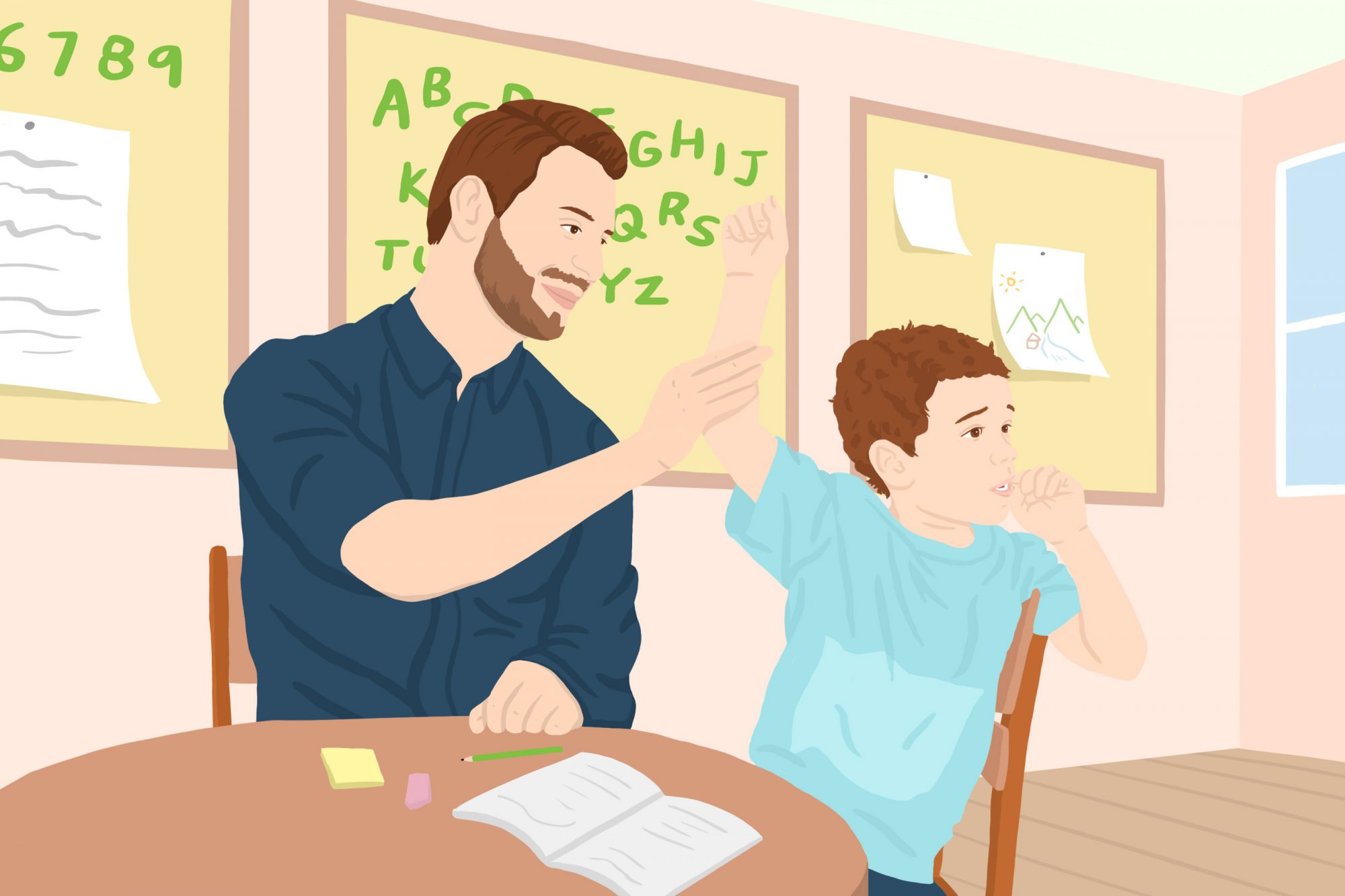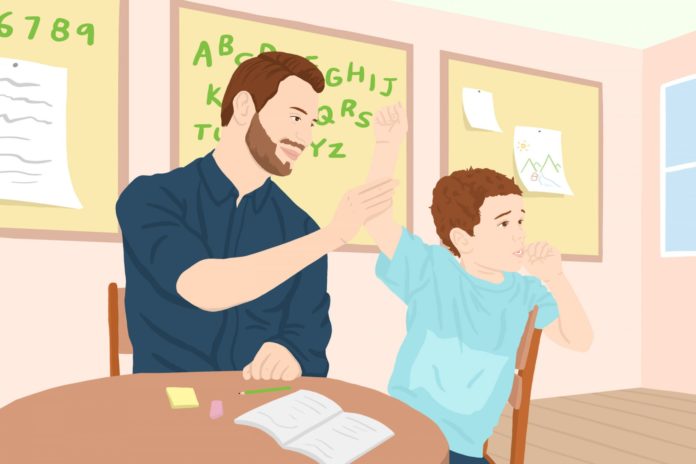
Could you imagine that there would be a kid who is diagnosed with an autism spectrum disorder (formerly diagnosed as Asperger’s syndrome and attention deficit hyperactivity disorder (ADHD) who would later exceed people’s expectations; rise above the ashes like a phoenix; and attend one of the best public universities in America? I can tell you that this kid exists because I am that kid.
During my later years of elementary school, I was diagnosed with Asperger’s syndrome, which was later reclassified as a diagnosis along the autism spectrum with the release of the DSM-5. In middle school I had also accumulated a diagnosis of ADHD. With my diagnoses affecting my life, both socially and emotionally, a decision was made to look for a boarding school for me to attend in the middle of my eighth-grade year. What I initially perceived as a way for my parents to get rid of me, I quickly learned that this was an amazing and life-changing experience that I would forever be grateful for.
Before I went to boarding school, my school and social life were dramatically different. I was an outlier among my neurotypical peers in my public school and it showed. It was hard for me to make friendships, let alone keep them. This inability to be on par, socially, with my peers ended up affecting my school and home life. My grades declined as I had lost my intrinsic motivation to earn good grades; my familial relationships were tense as I often directed my pent-up frustration and anger about my social life at my parents. In a nutshell, my life was at its lowest point and it was hard for me to see the light at the end of the tunnel. At this point, my parents realized the best way to help me would be to enroll me in a boarding school that specializes in helping kids like me.
While I could write at length about my experience leading up to and in boarding school, I find it most rewarding to use my experiences and life stories to help parents who have children similar to me that are lost and don’t know what to do.
Be Your Child’s Biggest Advocate
This, by far, is the most important thing for parents to do. No matter how many people doubt your motives or decisions, it is important to always have your child’s best interest in mind.
Families should do their research, explains Francyne Zeltser, Psy.D., a child psychologist in New York. "Ask what type of learning disability (LD) does my child have? Does the LD impact my child's ability to perform academically? What types of evidence-based services are available for a child with that type of LD? Are those services available within my child's school and district?" Parents should also look into availability to set up an Individualized Education Plan (IEP). "Knowledge is power; being informed is the best thing a family can do to help their child with a learning disability," says Dr. Zeltser.
My mother led the search for an alternative school for me. My parents felt strongly that this was the best option for my social and educational needs, but my mom was always met with opposition at every step of the way—from school district officials and educational consultants to close friends and family. It seemed as if no one was pleased with the choice to take me out of the public school system and enroll me in a boarding school.
It was only after I had been in boarding school that people really began to see what an amazing choice my family made. I had transformed into a new version of myself—a version where my social skill sets were on par with my neurotypical peers in order to master navigating tricky and difficult social situations. By attending boarding school my life turned around and I was on the track to success, meanwhile the parents of my peers with learning disabilities at my former school expressed regret that they did not fight tooth and nail to get the help their children needed.
Know Your Child\’s Rights
While switching schools is not an option for every family, there are things you can do to advocate for your child within your local district and that starts with knowing your child's rights under the Individuals with Disabilities Education Act (IDEA). IDEA is a federal law that makes available a free appropriate public education to eligible children with disabilities throughout the nation and ensures special education and related services to those children, explains Dr. Zeltser.
"By knowing their rights, parents can ensure that their child's school or district is doing what is necessary and appropriate to meet their child's needs," says Dr. Zeltser. "If a parent feels uneasy about an education decision made for their child they should take action; ask questions, challenge the decision, and ask to speak with the child's teachers or providers to get their opinions."
Dr. Zeltser also wants parents to know that they have the right to challenge any educational decision made on behalf of their child by the child's school and education advocacy groups are available to help. "Many provide free services to parents of children with learning disabilities that help parents advocate the special education system and assist families in making decisions that are in the best interest of their child with a learning disability," she says.
Treat Your Child as More Than Their Diagnosis
Often, when I tell people I have autism they are amazed that I can function as well as them. This tends to be perceived as a backhanded compliment in a way. Yes, it is great that I was able to get the help I needed to function as an adult, but I shouldn’t be defined by my diagnosis. Like how others wish to be defined by more than their religion, ethnicity, gender, race, and sexual orientation, people with learning disabilities don’t want to be confined to being viewed as a disabled person who has overcome challenges. Rather, it is better to define them by characteristics and traits that make them unique.
It could be the initial reaction for parents to assume their child will never be able to keep up with their peers based on their diagnosis, but by undermining them, their true potential might never be fully realized. Sure, people with autism may have trouble navigating social situations, but that doesn’t mean that they cannot be successful. Historical figures like Albert Einstein and Thomas Jefferson are believed to have had some characteristics of autism, yet they’ve achieved remarkable successes in their lifetimes. So, to parents who doubt the success of their child with a learning disability, I am living proof that there is hope as long as you are willing to see past your child’s diagnosis and do everything in your ability to help them succeed.
An Expert Weighs In
The best thing a parent can do to help their child is to provide support, encouragement, education, and empowerment, says Dr. Zeltser. "Support your child and understand that tasks that come naturally to other children are challenging for him," she adds. "Encourage your child to keep trying and put forth his best effort despite these challenges. Educate your child about his learning disabilities, academic and personal strengths, and areas of growth." Through this encouragement, parents can set an example that helps empower children to be their own advocate, ensuring that their needs are being met at school, at home, and in the community.
Ross Mesnick is a junior at Binghamton University's School of Management where he studies Business Administration with concentrations in Supply Chain Management, Management Information Systems, and Business Analytics. Mesnick chose his majors while keeping his two passions in mind: business and technology.
Read more Teen Talk columns here.













